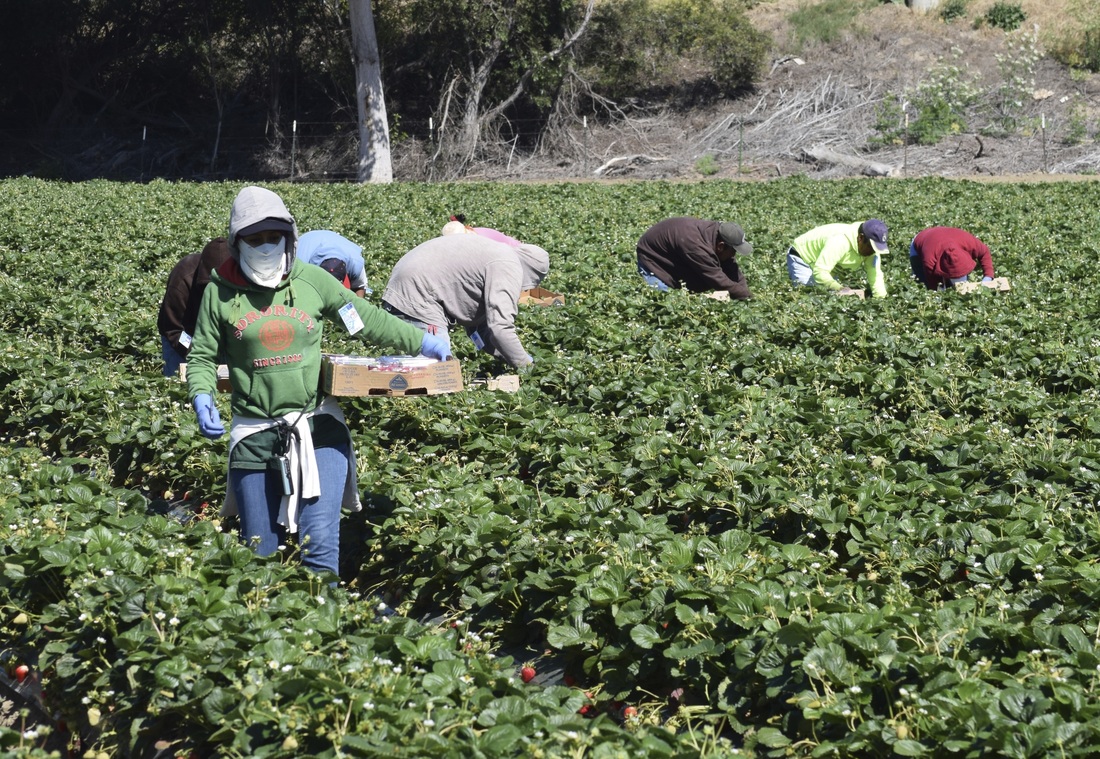|
A woman is a very central, matriarchal, and necessary part of the traditional Hispanic household. Oftentimes one thinks of migrant workers as young men coming to the country to work in the fields. The women who accompany them are too often seen as passive passengers on the dangerous journey many migrant workers face each season.
The month of March honors Women’s History Month. It is important to take time and show recognition for the strong women in the fields who are much more than a passive voice accompanying their male counterparts. “There is no question,” great civil rights and farmworker activist Dolores Huerta says, “that our women are strong. They work right alongside the men in the fields.” And when the day’s labor is done the women go home, cook for their families, help their children with homework or if they’re younger, bathe and feed them. It is very rare that the female farmworker takes time for herself, and she rarely asks for it. There is too much work to be done. Ms. Huerta is right, there is no question whether America’s farmworking women are strong. The question is; how do we give this silent population a voice? According to Cultural Survival there is little known information on the health status of migrating women in the United States. Undocumented female workers face unique barriers, among them, poor occupational health and safety, poor diet, and most are unfamiliar with the affordable health services they are eligible for. The barriers mentioned above do not exclusively affect women. However, one fear that women have reported more frequently than migrant men is the fear of sexual abuse. Many migrant women do not report cases of sexual assault because they fear repercussions. Nearly 50% of the migrant agricultural workforce are undocumented immigrants; too often women remain silent because of their fear of termination or deportation. In the rare occasion that a woman reports abuse, it is usually lengthy process that is not sustainable or affordable for a low-income migrating family. It goes without saying that sexual abuse can cause physical and emotional harm to our women in the fields, especially when abusers are not charged for their crimes. So what can we do to help our mothers, sisters, and daughters in the fields? Community Health Workers and Promotoras de Salud can go out in the fields and educate both men and women on what constitutes as sexual abuse. There are some laws that protect our female farmworkers as well. Abuse in the fields is unacceptable. Abuse in the fields without knowing how to access health services is unacceptable. The National Center for Farmworker Health is calling on Migrant and Community Health Centers to increase their number of farmworkers served to 2 million by the year 2020. No one should fear their mortality or safety because of lack of access to primary and preventative health care services. Find out other ways you can get involved to help women in the fields raise their voices. Photo Credit: iStock Comments are closed.
|
The National Center for Farmworker HealthImproving health care access for one of America's most vulnerable populations Archives
March 2024
Categories
All
|


 RSS Feed
RSS Feed